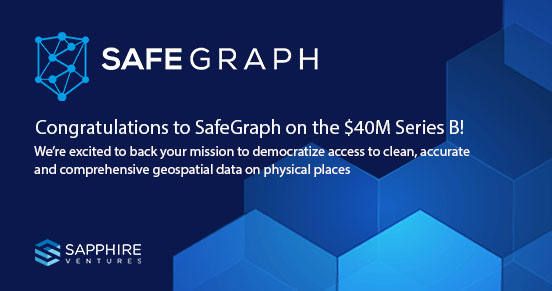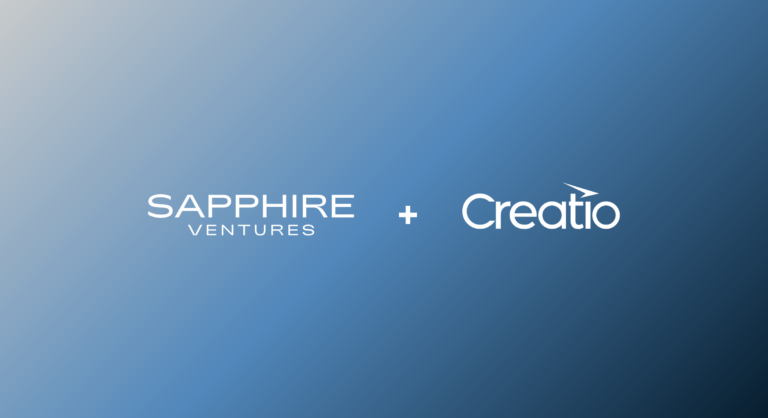We’re excited to share that Sapphire Ventures is leading Tetrate’s $40 million Series B funding round. What Tetrate does is complex, but essential. The company helps power the cloud-native container based applications that we use daily. While these applications are easy to use, bringing them to life requires a lot of work in the background, including frequent code updates, security, data and more.
To build these next-generation applications, developers are increasingly turning away from monolithic architectures and towards microservices, which are individualized components that take care of specific functions and run on containers. To illustrate what that means, it’s like moving to an assembly line method of writing and deploying software code, rather than having developers work on one big mass of spaghetti code. Thanks to the rise of microservices running on containers, developers are able to build more scalable applications and release them faster.
As microservices grow in popularity, there’s a new demand for service mesh technologies that help route traffic between microservices, add visibility and enhance security. Istio, an open source service mesh first developed by the founders of Tetrate and the team at Google, has emerged as the winner in this space, and Tetrate is scaling the platform by making it enterprise-ready.
Tetrate’s central management platform handles multi-site deployments across public and private cloud, and comes with enterprise-level features around security and reliability. What’s more is that the team behind Tetrate has already earned developer trust with its deep and longstanding commitment to open source, making it a technology today’s software architects are hungry for.
Here’s more on why we’re so excited about Tetrate:
A fundamental shift toward microservices
As mentioned, developers have been moving away from building applications using monolithic architecture and toward a cloud-native ecosystem based on container deployments. In fact, Gartner estimates that more than 85% of global organizations will be running containerized applications by 2025, compared to fewer than 35% in 2019. Containers allow companies to split applications into decentralized microservices, enabling developers to work on multiple functions simultaneously, isolate errors or bugs and release incremental updates.
The rise of microservice-based software architecture has created the need for tools that allow for visibility and management into this complex infrastructure, particularly among enterprises. Similar to an API gateway, but designed for microservices, a service mesh is a framework that adds a layer of traffic management, observability and security. According to 451 Research, nearly 90% of organizations have adopted service mesh technology or are considering doing so.
Bringing Istio to the enterprise

For developers, the open source tool of choice for service mesh offerings is Istio, which is exactly what Tetrate is built on top of. According to StackRox’s “The State of Container and Kubernetes Security” report from Winter 2020, a majority of IT professionals say they are using or looking into Istio. The tool’s performance on Github, where it has earned more than 26,000 stars, is another sign of its popularity and rapid adoption.
Launched in 2018, Tetrate builds on the success of Istio by making the tool more manageable and reliable for enterprise users. Although Istio can run in different environments, it was built as an open source product to support Kubernetes and can be challenging to scale. Tetrate offers a service mesh that takes Istio to the cloud and multi-clusters, expanding it beyond Kubernetes.

In addition, Tetrate takes over the application network management so that internal teams can focus on their core application and business logic. It also offers features designed for enterprises, including login management, security enforcement, routing, autoscaling, load-balancing and analytics. Enterprises that aren’t cloud-native can use Tetrate to leverage Istio as part of their technology stack, connecting applications that are running on on-prem data centers to their cloud-native applications. As Istio takes off amid the microservices revolution, Tetrate is poised to bring this tool to the mainstream enterprise.
A trusted team committed to open source
We believe that no team is better suited to lead Tetrate as it expands the usability of Istio. Tetrate co-founder Varun Talwar was the co-creator and founding product manager of Istio at Google, while his co-founder Jeyappragash “JJ” Jeyakeerthi lead the Cloud Infrastructure Management platform for Twitter. Tetrate’s leaders have demonstrated a deep commitment to open-source and they have recruited an impressive team of technical contributors with expertise in the Istio ecosystem and related open-source projects. In addition, the company’s advisory board includes Matt Klein, founder of Envoy, an open-source edge and service proxy often used hand-in-hand with Istio.

This latest round of funding will enable the Tetrate to ramp up its sales and marketing teams. The company will also invest in building out proprietary and enterprise-focused features that will help take the startup to the next level.
We’re thrilled to have Tetrate join Sapphire’s list of portfolio of companies that specialize in API-first platforms including recent investments such as Kong, Contentful and PubNub, and exits such as Auth0, Segment and MuleSoft. We’re also excited to continue our longstanding support of open-source companies such as Red Hat (now part of IBM) and MySQL (now part of Oracle), and recent Sapphire IPO JFrog and current portfolio company InfluxData.





